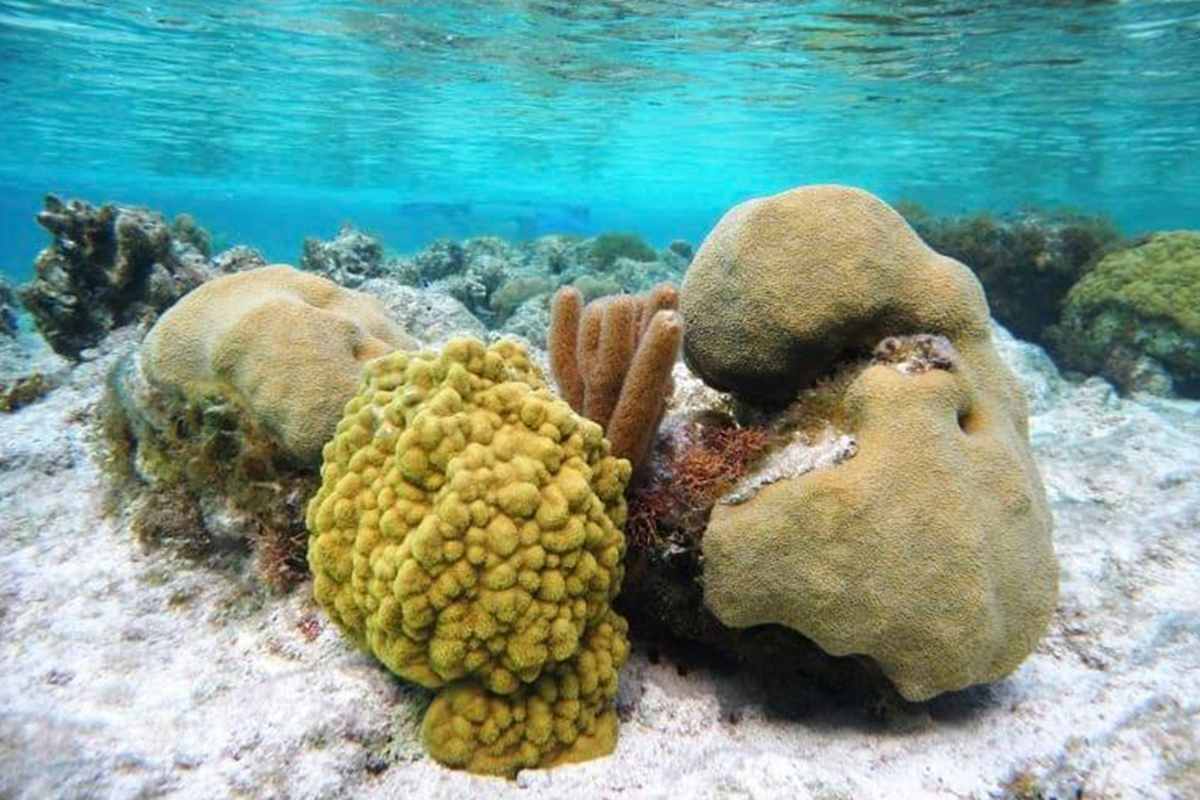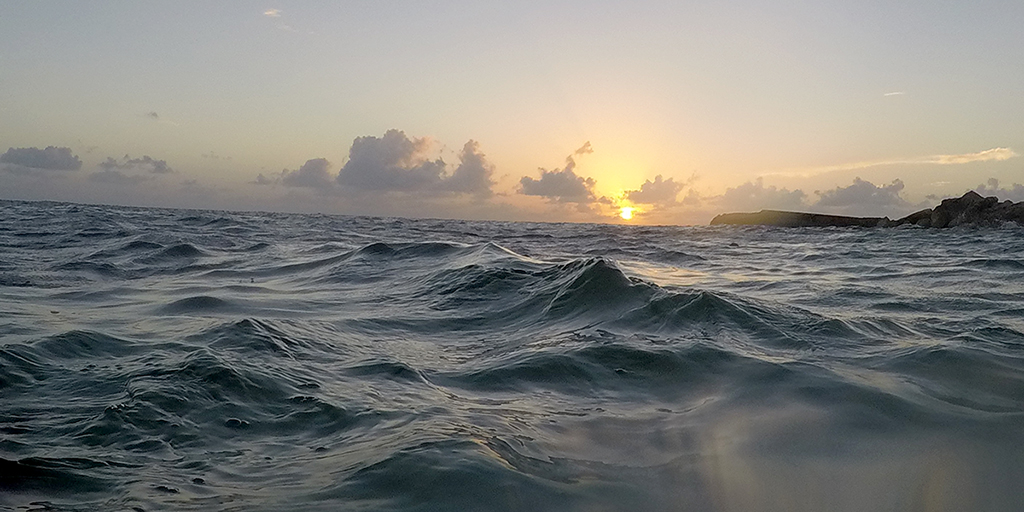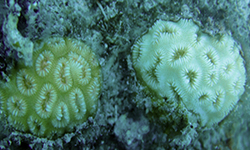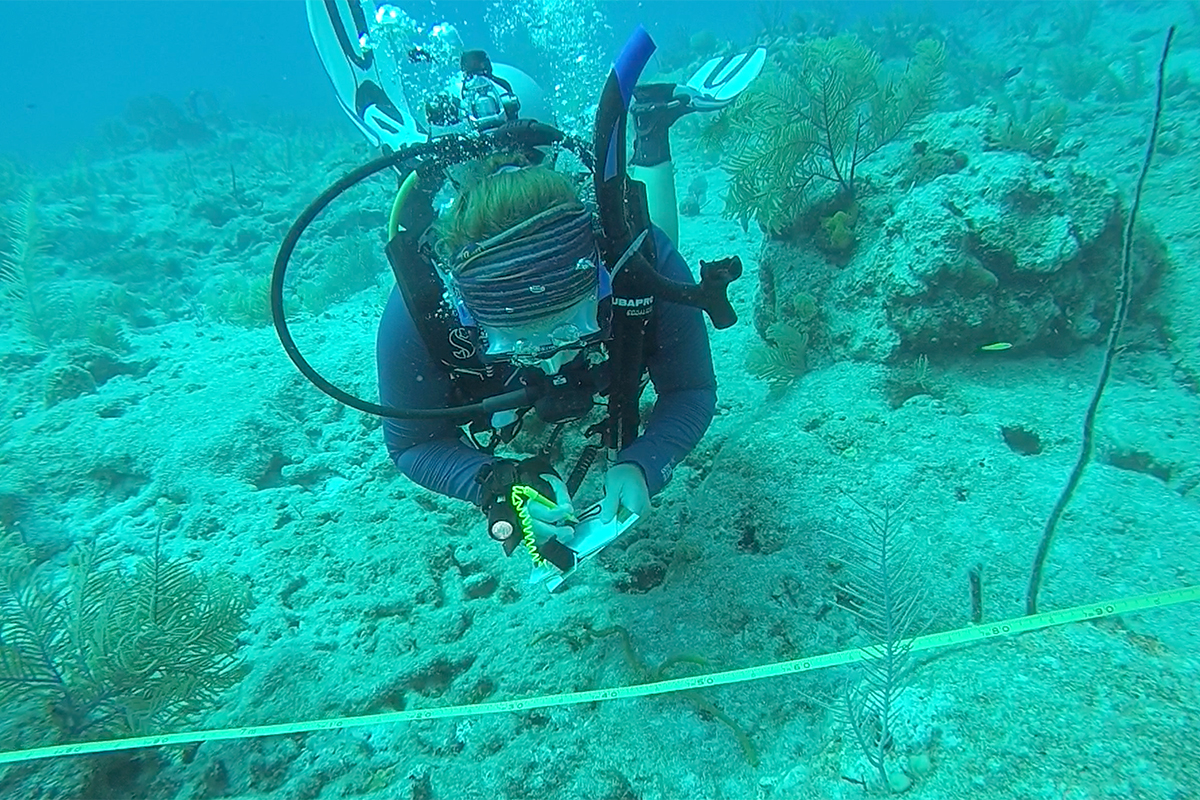
Corals on Turks and Caicos Islands in the Caribbean experienced very little bleaching and recovered quickly from the 2014-17 global coral-bleaching event, researchers report.
Photo by Abby Knipp

While an undergraduate student, Abby Knipp participated in coral research on Turks and Caicos Islands. She is the first author of a new report about the study.
Photo courtesy Abby Knip
CHAMPAIGN, Ill. — A study that relied on citizen scientists to monitor the health of corals on Turks and Caicos Islands in the Caribbean from 2012 to 2018 found that 35 key coral species remained resilient during a 2014-17 global coral-bleaching event that harmed coral reefs around the world. Even corals that experienced bleaching quickly recovered, the researchers found. Some corals appeared healthier in 2017 than they were in 2014.
The researchers report their findings in the Springer Nature journal Applied Sciences.
"Boulder-type corals on the Turks and Caicos Islands demonstrated no significant bleaching as a result of the peak thermal stress in late 2015," said Abby Knipp, who conducted the research while an undergraduate student at the University of Illinois at Urbana-Champaign. Knipp is the first author of a paper detailing the findings. "Plate-type corals did suffer bleaching, but they quickly rebounded. Their pigmentation levels were back to normal within months of the anomalously high thermal stress."

Surface waters near Turks and Caicos Islands tend to be cooler than other parts of the Caribbean.
Photo by Abby Knipp

Coral bleaching may afflict only one region of a coral or affect one specimen while sparing another of the same species
Photo by Abby Knipp
Coral bleaching is a common response to extreme heat stress, and global coral-bleaching events are becoming more frequent as the oceans warm. The 2014-17 bleaching event occurred as record-breaking sea-surface temperatures pushed some corals past their physiological limits. Scientists call it "the most severe, widespread and longest-lasting" global coral-bleaching event on record.
Pigmentation in corals comes from photosynthetic algae, on which the corals depend for nutrients, said U. of I. geology professor and study co-author J. Cory Pettijohn.
"The algae colonize the corals and feed on the byproducts of their metabolism," he said. "When sea-surface temperatures are too high, corals will expel the algae. Corals that experience prolonged bleaching usually die, leaving only a white calcium-carbonate skeleton behind."
In Turks and Caicos Islands, pigmentation of the boulder corals was darker in 2017 than in 2014, suggesting these corals were even healthier after rebounding from the heat stress, Knipp said.
"We were surprised that apparent healing and darkening could happen so fast," she said.

As part of her undergraduate education at the U. of I., Abby Knipp participated in a citizen science study of corals on Turks and Caicos Islands.
Photo courtesy Abby Knipp
The scientists say more studies are needed to explain the unusual hardiness of the corals at Turks and Caicos Islands, but previous research offers clues to factors that promote coral health. For example, some algal types appear to confer added resilience to corals experiencing heat stress. Ocean salinity and acidity likely play a role. Turks and Caicos Islands tend to have lower water temperatures than other, more thermally stressed regions of the Caribbean. And the massive 2017 hurricanes Irma and Maria cooled surface waters and likely contributed to the corals' recovery, the researchers said.

Researchers used a color-coded guide to coral bleaching to keep track of changes in coral health from 2012 to 2018.
Photo courtesy Abby Knipp
Knipp conducted this research while studying abroad at the School for Field Studies' Center for Marine Resource Studies in Turks and Caicos Islands. She graduated from the U. of I. in May 2019.






